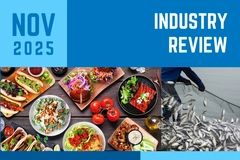
- Industry news
Industry news
- Category news
Category news
- Reports
- Key trends
- Multimedia
Multimedia
- Journal
- Events
- Suppliers
Suppliers
- Home
- Industry news
Industry news
- Category news
Category news
- Reports
- Key trends
- Multimedia
Multimedia
- Events
- Suppliers
Suppliers
Campbell Soup Company Announces Dual Mandate to Change Its Centre of Gravity

19 Feb 2015 --- Campbell Soups has announced a restructuring programme that is set to save the company an annual $200m over three years, it said.
The company said that it is coming under increasing pressure from consumers who are interested in exactly where their food comes from as well as a growing distrust of Big Food, as Campbell’s CEO Denise Morrison coined the food industry.
Morrison announced a dual mandate that will change the company’s centre of gravity. She said that a seismic social shift has led to a change in relationships with customers and consumers, and cited changes in family structures and profound shifts in consumer preferences and priorities in the food they eat as having an effect on companies like Campbell’s and its rivals.

Morrison said: “Trends are converging to forge a new era in the food business and that is not going away. So we had the changes in mind when implementing the dual mandate.
“We have found it unusually difficult to forecast results goals amid extremely challenging conditions facing the industry,” she said. Campbell’s recently announced lower growth forecast for Q2 and the rest of the year.
The company announced a major new cost reduction initiative and a significant initiative to simplify its organization structure in order to improve its agility in the marketplace. Campbell expects these steps to generate annual cost savings of at least $200 million over a three-year period.
“The changes now underway at Campbell have far-reaching implications for the conduct of our business and the future of our company,” said Morrison. “Our new enterprise design will align our structure directly with our core growth strategies and enable us to invest more of our resources in the areas of our business that can deliver the greatest growth. Through our critical new cost management initiative, we will generate significant additional funds for growth and margin expansion. And through our organization redesign, we will unleash the power of our people by reducing complexity, driving faster commercialization and delivering more rapid deployment of our talent against our largest opportunities.”
Under the new enterprise design, Campbell’s businesses will be organized in three new divisions structured mainly by product categories rather than by geographies or brand groups. Each division will have meaningful scale, a clearly defined role in the company’s portfolio, and appropriate targets for growth:
• Americas Simple Meals and Beverages, the largest division, will include Campbell’s current U.S. Retail and foodservice businesses, Plum Organics, and the company’s simple meals and shelf-stable beverage businesses in Canada, Mexico and Latin America. With aggregate net sales of approximately $4.5 billion, the businesses that will comprise this new division represented 55% of total company sales and generated about 70% of total operating earnings in fiscal 2014.
• Global Biscuits and Snacks will unify the Pepperidge Farm, Arnott’s and Kelsen businesses into a fully integrated global biscuits and snacks portfolio. The company’s simple meals and beverage businesses in Asia Pacific and Asia, including its soup and broth business in Hong Kong and China, and Pepperidge Farm’s U.S. bakery business, will also be operated within this division. With approximately $2.8 billion in net sales, the businesses that will be part of this new division generated about 33% of company sales and 25% of operating earnings in fiscal 2014.
• Packaged Fresh will focus on building scale and accelerating growth in rapidly expanding packaged fresh categories across the retail perimeter. It will include Bolthouse Farms’ portfolio of fresh carrots, super-premium beverages and salad dressings, as well as Campbell’s retail refrigerated soup business. These businesses accounted for approximately $1 billion of net sales – about 11% of company sales – and generated 5% of company operating earnings in fiscal 2014.











